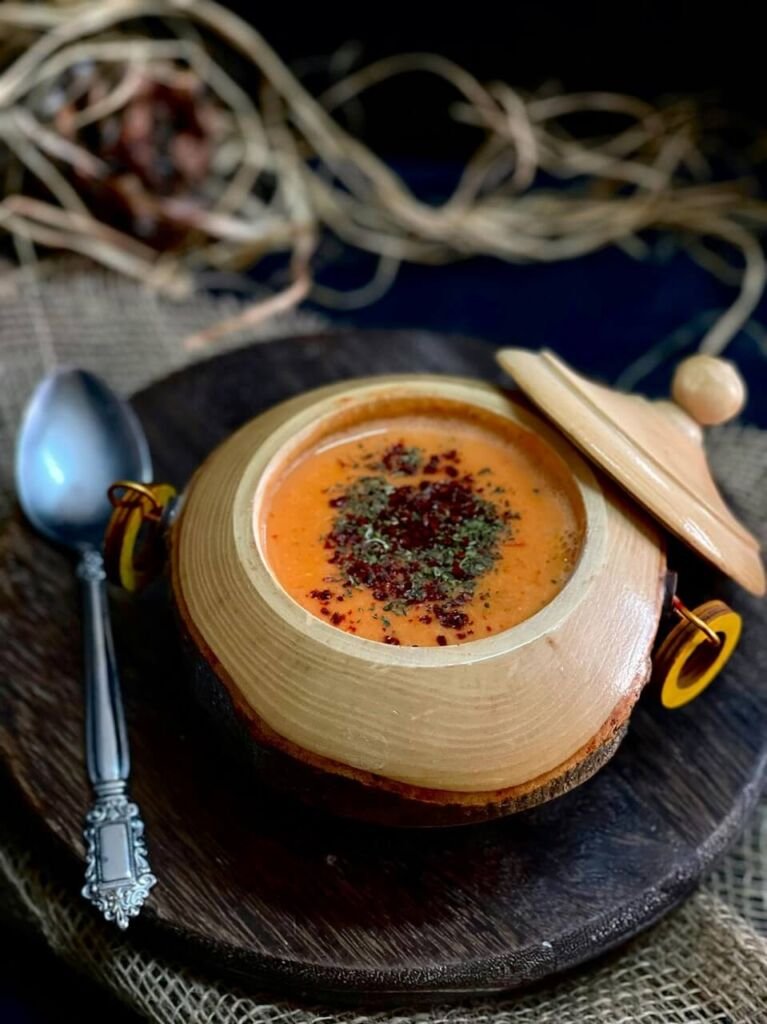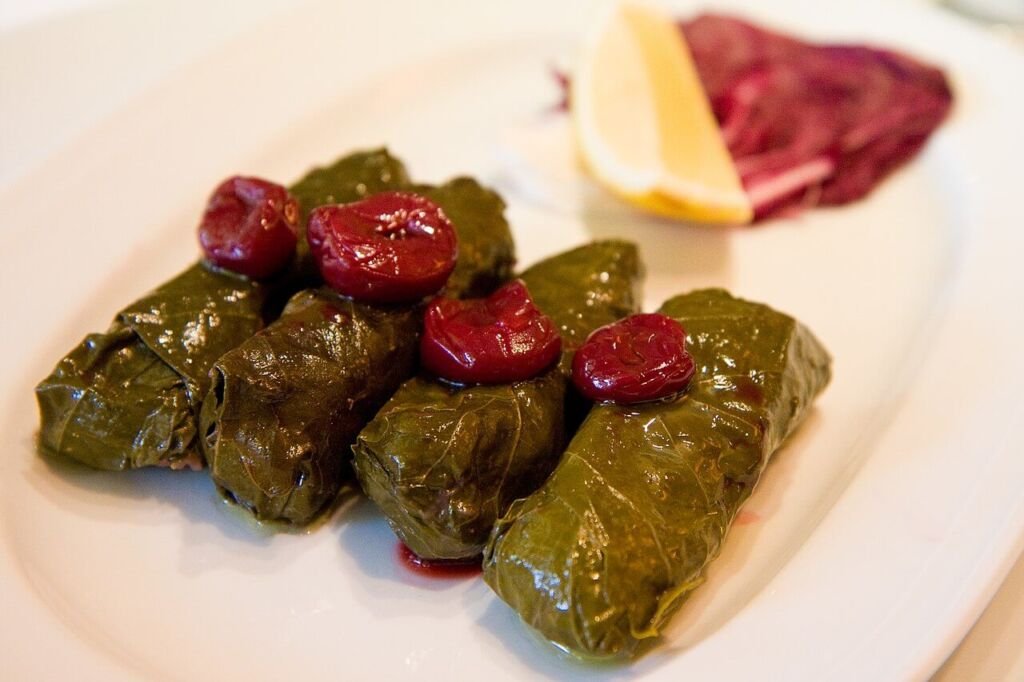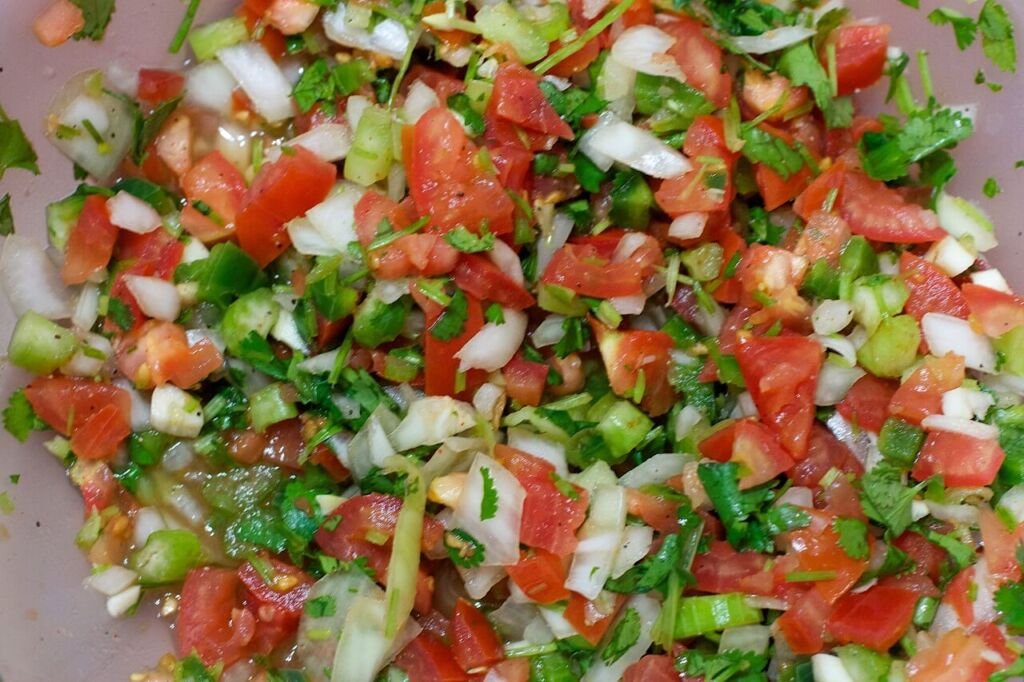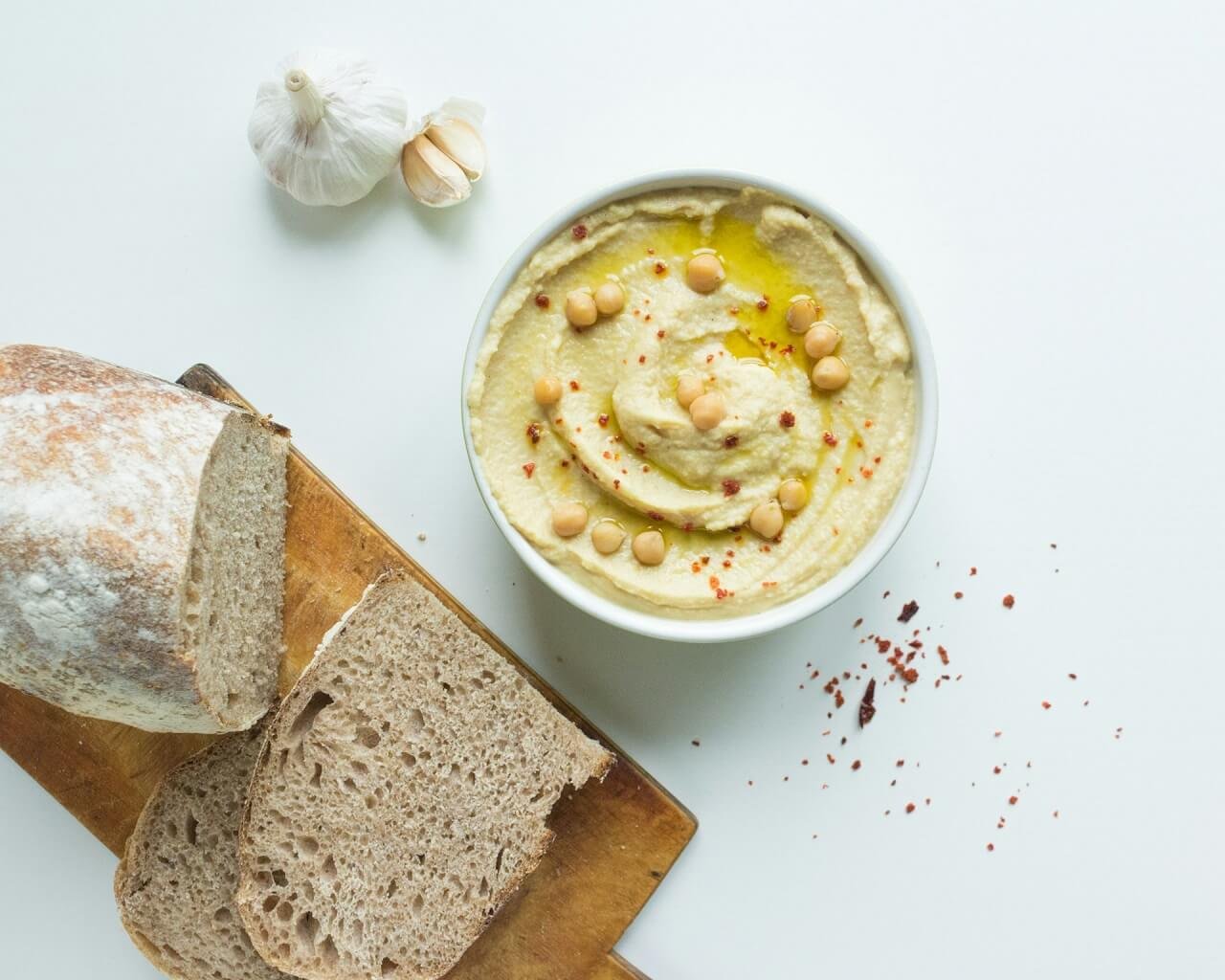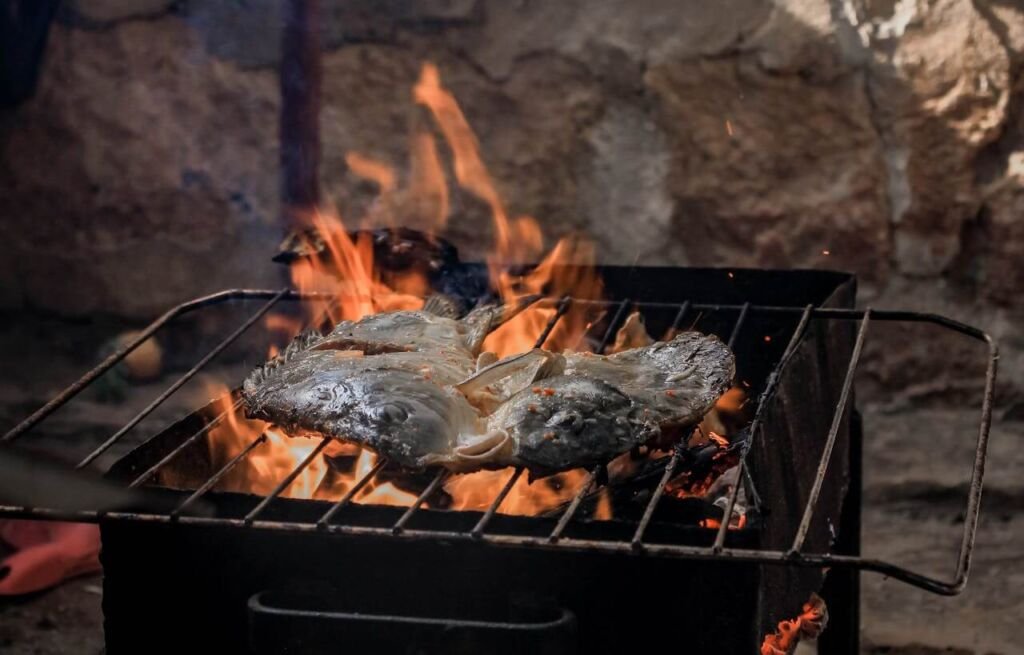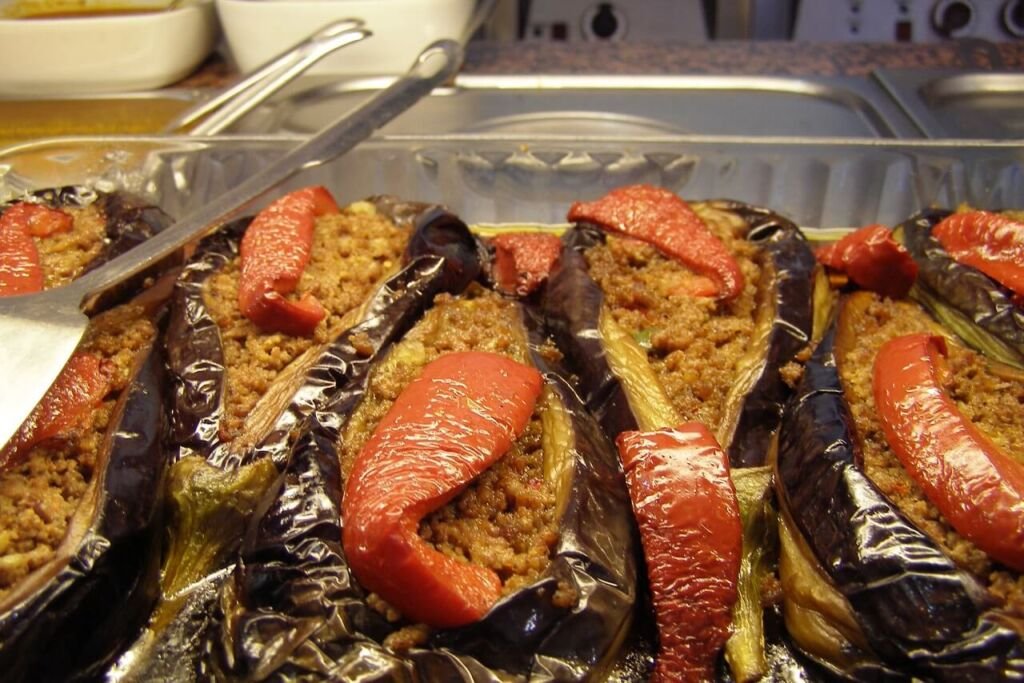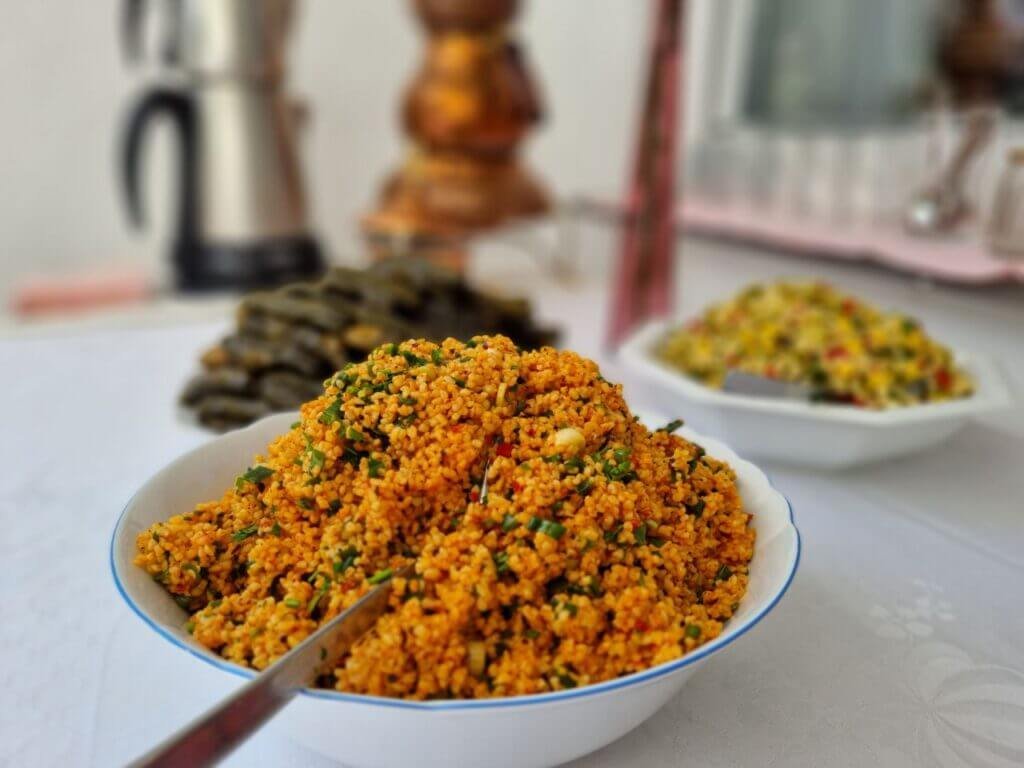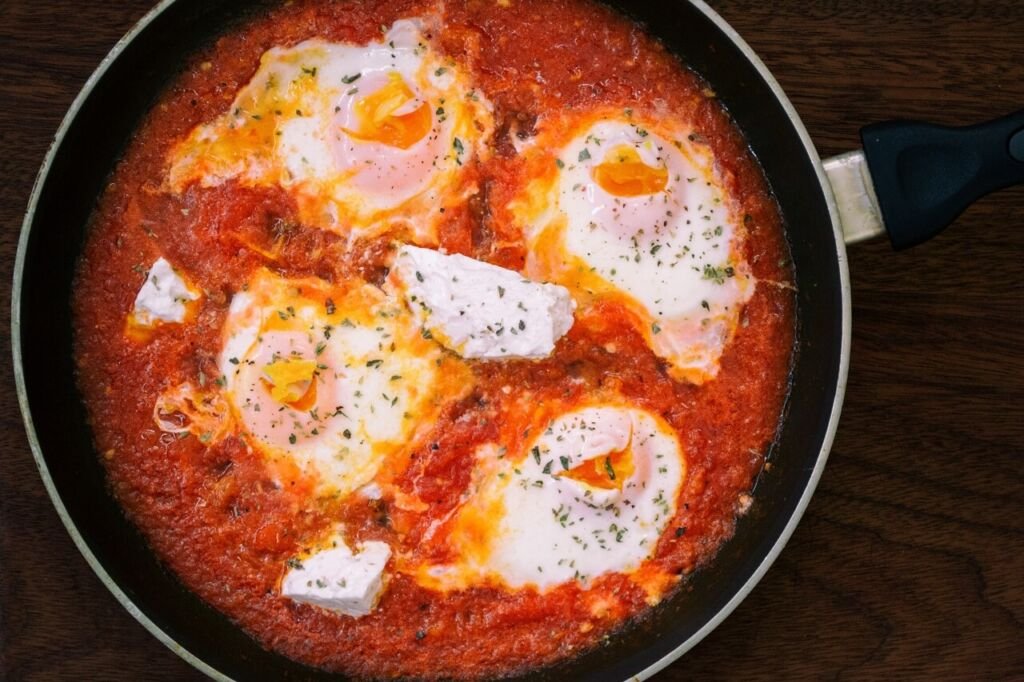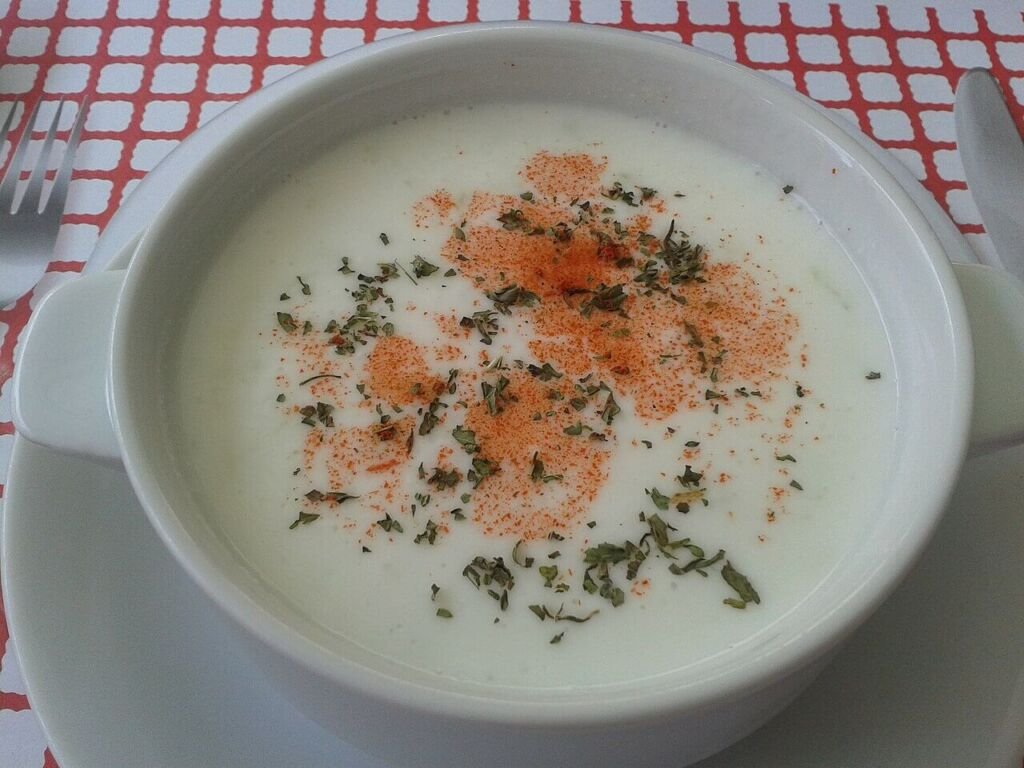Healthy Turkish Food: A Guide to Nutritious and Delicious Dishes
Table of Contents
ToggleWhen you think of Turkish food, what comes to mind? For many, it’s sizzling kebabs or sticky-sweet baklava. While those are indeed part of our cuisine, they represent a tiny fraction of what we truly eat.
As a specialist who has spent over a decade exploring the food culture of Turkey and the Mediterranean, I’m here to show you the lighter, healthier, and more authentic side of Turkish cuisine.
The traditional Turkish diet is a vibrant, flavorful branch of the renowned Mediterranean lifestyle. It’s built on a foundation of sun-ripened vegetables, protein-rich legumes, lean meats, and of course, liquid gold—olive oil.
This guide will provide everything you need to know to eat well in Turkey, from the nutritional values of key dishes and step-by-step recipes to finding healthy options on the street and in local restaurants.
Turkish Cuisine vs. The Mediterranean Diet: A Deep Dive
The Turkish diet is often praised as one of the healthiest in the world, and for good reason -it’s a cornerstone of the Mediterranean diet. However, it has unique characteristics that make it distinct.
Similarities: Both diets prioritize fresh vegetables, fruits, legumes, nuts, and whole grains. Olive oil is the primary source of fat, and both favor grilled fish and poultry over red meat. This shared foundation is responsible for well-documented health benefits, including improved heart health, weight management, and reduced inflammation.
Unique Turkish Elements: Where Turkish cuisine carves its own identity is through a few key elements. Yogurt (Yoğurt) is a culinary superstar, consumed daily in drinks like ayran or as a base for dips like cacık. Spices like pul biber (red pepper flakes) and sumac add unique, antioxidant-rich flavors. Bulgur wheat is often favored over pasta as the staple grain, and the concept of kahvaltı (a large, savory breakfast) is a defining feature.
The Building Blocks of Healthy Turkish Cooking
To truly understand healthy Turkish food, you need to know our pantry. These are the core ingredients that make our dishes both nutritious and delicious.
Olive Oil (Zeytinyağı): The undisputed king of the Turkish kitchen, used generously in everything from salads to slow-cooked vegetable dishes (Zeytinyağlılar).
Bulgur Wheat: A fiber-rich whole grain made from cracked wheat. It’s the base of kısır salad and a healthier alternative to white rice.
Lentils & Legumes (Mercimek, Nohut): Red lentils form our most famous soup, while chickpeas (nohut) are used in stews and mezes. They are plant-based protein powerhouses.
Pomegranate Molasses (Nar Ekşisi): A tart, syrupy condiment made from reduced pomegranate juice. It adds a tangy, antioxidant-rich kick to salads like kısır and çoban salatası.
Yogurt (Yoğurt): Full-fat, plain yogurt is a probiotic cornerstone, essential for gut health and used in countless dishes.
Fresh Herbs (Parsley, Dill, Mint): We use herbs liberally for flavor, allowing us to reduce salt and fat without sacrificing taste.
Spices (Pul Biber, Sumac, Cumin): These add depth and flavor. Pul Biber is known to boost metabolism, while sumac provides a lemony tang.
1. Mercimek Çorbası (Lentil Soup)
A Nutrient-Packed Start
Mercimek Çorbası is a staple Turkish soup made from red lentils, onions, carrots, and spices like cumin and paprika.
Tags: Vegetarian, Vegan Option, Low-Calorie, High-Fiber
Why It’s Healthy: This warming, satisfying soup is packed with plant-based protein and soluble fiber, which aids digestion and keeps you feeling full for hours.
Nutritional Snapshot (Approx. per serving):
Calories: ~150 kcal
Protein: ~9g
Carbs: ~25g
Fat: ~2g
Click for Full Recipe
Ingredients: 1 cup red lentils (rinsed), 1 onion (chopped), 1 carrot (chopped), 1 tbsp tomato paste, 1 tsp dried mint, 1 tsp paprika, pinch of pul biber (red pepper flakes), 6 cups vegetable broth, 1 tbsp olive oil, lemon wedges for serving.
Instructions:
1. Sauté onion and carrot in olive oil until soft.
2. Stir in tomato paste and spices, cooking for 1 minute.
3. Add lentils and broth. Bring to a boil, then simmer for 20-25 minutes until lentils are tender.
4. Use an immersion blender to blend until smooth. For a vegan option, ensure you use vegetable broth.
5. Serve hot with a squeeze of fresh lemon and a sprinkle of pul biber.
2. Zeytinyağlı Dolma (Stuffed Vegetables in Olive Oil)
What is Zeytinyağlı Dolma?
Zeytinyağlı Dolma refers to vegetables like peppers, tomatoes, zucchinis, or eggplant stuffed with a flavorful mixture of rice, pine nuts, currants, and herbs, all cooked in olive oil.
This vegetarian dish is often served cold and is a delicious way to incorporate more vegetables and healthy fats into your diet.
Why It’s Healthy
- Olive oil: A key component of the Mediterranean diet, olive oil is packed with heart-healthy monounsaturated fats and antioxidants.
- Vegetable-rich: Provides vitamins, minerals, and fiber.
- Naturally low in calories: A great option for light yet satisfying meals.
3. Çoban Salatası (Shepherd’s Salad)
A Refreshing, Simple Salad
Çoban Salatası is a refreshing Turkish salad made with chopped cucumbers, tomatoes, green peppers, onions, and parsley, dressed in lemon juice and olive oil.
Tags: Vegetarian, Vegan, Low-Calorie, Gluten-Free
Why It’s Healthy: With no lettuce, this salad is a dense mix of hydrating, antioxidant-rich vegetables. The simple dressing of olive oil and lemon juice provides healthy fats and vitamin C without any processed additives.
Nutritional Snapshot (Approx. per serving):
Calories: ~120 kcal
Protein: ~2g
Carbs: ~8g
Fat: ~9g
Click for Full Recipe
Ingredients: 3 tomatoes, 2 cucumbers, 1 green bell pepper, 1 small red onion, 1 large handful of fresh parsley, 3 tbsp extra virgin olive oil, 2 tbsp lemon juice, salt to taste.
Instructions:
1. Finely chop all vegetables and parsley and place in a bowl.
2. Drizzle with olive oil and lemon juice.
3. Toss gently, season with salt, and serve immediately. For extra flavor, add a sprinkle of sumac.
4. Hummus
A Protein-Rich Dip
Hummus, while originating from the broader Middle Eastern region, is a popular meze in Turkey.
Made from blended chickpeas, tahini (sesame paste), garlic, lemon juice, and olive oil, hummus is rich in plant-based protein and healthy fats.
Health Benefits
- Rich in protein and fiber: Chickpeas provide a slow-burning source of energy, making you feel fuller for longer.
- Contains heart-healthy fats: The tahini and olive oil offer essential fats that promote cardiovascular health.
- Nutrient-dense: Packed with vitamins and minerals like iron, magnesium, and vitamin B6.
5. Grilled Fish (Izgara Balık)
A Lean Protein Option
Turkey’s extensive coastline means that seafood is a regular part of the diet, with grilled fish being one of the healthiest options.
Fish like sea bass (levrek), sea bream (çupra), or mackerel (uskumru) are grilled with a drizzle of olive oil, lemon, and fresh herbs, making for a flavorful and lean source of protein.
Tags: Low-Carb, High-Protein, Gluten-Free
Why It’s Healthy: Grilling is a perfect cooking method for preserving the lean protein and omega-3 fatty acids in fish, which are crucial for heart and brain health.
Nutritional Snapshot (Approx. per serving, sea bass):
Calories: ~250 kcal
Protein: ~40g
Carbs: ~0g
Fat: ~10g
6. Imam Bayıldı (Stuffed Eggplant)
A Plant-Based Delight
Imam Bayıldı is a vegetarian dish where eggplants are stuffed with a mixture of onions, garlic, tomatoes, and spices, and then slowly cooked in olive oil.
This dish is incredibly flavorful and provides a healthy balance of vegetables and healthy fats.
Tags: Vegetarian, Vegan, High-Fiber
Why It’s Healthy: This dish is a celebration of vegetables, slow-cooked in heart-healthy olive oil. Eggplant is a great source of fiber and antioxidants.
Nutritional Snapshot (Approx. per serving):
Calories: ~220 kcal
Protein: ~4g
Carbs: ~20g
Fat: ~15g
7. Kısır (Bulgur Salad)
A Fiber-Rich Grain Salad
Kısır is a healthy Turkish salad made from bulgur wheat, finely chopped parsley, mint, green onions, and tomatoes, flavored with pomegranate molasses and olive oil.
Tags: Vegetarian, Vegan, High-Fiber
Why It’s Healthy: Bulgur wheat is a fantastic source of dietary fiber and has a low glycemic index, providing sustained energy. This salad is also packed with fresh herbs and vegetables.
Nutritional Snapshot (Approx. per serving):
Calories: ~180 kcal
Protein: ~4g
Carbs: ~30g
Fat: ~5g
8. Menemen (Turkish Scrambled Eggs)
A Protein-Packed Breakfast
Menemen is a simple but nutritious Turkish breakfast dish made with scrambled eggs, tomatoes, green peppers, and onions, cooked in olive oil.
Some variations also include cheese or sausage, but the base ingredients are inherently healthy and full of flavor.
Why Menemen is a Healthy Breakfast
- High in protein: Eggs provide all the essential amino acids your body needs for repair and growth.
- Low in carbohydrates: A great choice for those following a low-carb diet.
- Rich in antioxidants: Tomatoes and peppers are excellent sources of vitamins A and C.
9. Cacık (Yogurt and Cucumber Dip)
A Cool and Refreshing Side
Cacık is a traditional Turkish side dish made from yogurt mixed with finely chopped cucumbers, garlic, and fresh dill or mint, served chilled.
It’s similar to Greek tzatziki and is a cool, refreshing accompaniment to many meals.
Nutritional Value
- Probiotic-rich: Yogurt contains beneficial bacteria that support gut health.
- Low in calories: A light, healthy option for those watching their caloric intake.
- Hydrating and nutritious: Cucumbers are hydrating, and yogurt is rich in calcium and protein.
10. Fırınlanmış Sebzeler (Oven-Roasted Vegetables)
A Simple, Nutritious Dish
Oven-roasted vegetables, or Fırınlanmış Sebzeler, are a common and healthy Turkish side dish.
Vegetables such as zucchini, peppers, eggplant, and tomatoes are lightly drizzled with olive oil and roasted until caramelized, bringing out their natural sweetness.
Health Benefits
- Packed with vitamins and minerals: Roasting preserves the nutrients in vegetables, making them a nutrient-dense side dish.
- Low in fat: Only a small amount of olive oil is used, making this dish a low-fat option.
- High in fiber: Supports digestive health and helps maintain a healthy weight.
Healthy Turkish Street Food: Smart Choices on the Go
Don’t let street food intimidate you! There are plenty of healthy and delicious options available if you know what to look for.
Excellent Choices:
Simit: Often called a “Turkish bagel,” these sesame-covered bread rings are a good source of fiber and make for a filling snack.
Mısır: Simple boiled or grilled corn on the cob. It’s clean, simple, and satisfying.
Kestane: Roasted chestnuts, especially popular in winter, are a warm, low-fat snack.
Midye Dolma: Stuffed mussels with herbed rice. They are a great source of omega-3s and protein, but enjoy them in moderation from a clean, reputable vendor with a high turnover.
Guilt-Free Indulgence: Healthy Turkish Desserts & Drinks
Yes, you can have dessert! While Turkey is famous for baklava, there are many lighter, healthier ways to satisfy your sweet tooth.
Desserts:
Meyve Tabağı (Fresh Fruit Platter): This is the number one healthiest choice, showcasing the season’s best fruits like melon, figs, cherries, and berries.
Aşure (Noah’s Pudding): A uniquely nutritious dessert made with a mix of grains (wheat, chickpeas), fruits, and nuts. It’s packed with fiber and protein.
Sütlaç (Rice Pudding): This baked rice pudding is a lighter, creamier option. Ask for it to be homemade, as it often contains less sugar than pre-packaged versions.
Drinks:
Ayran: The national drink made from yogurt, water, and a pinch of salt. It’s excellent for digestion and hydration.
Şalgam Suyu: A salty, sour fermented turnip and carrot juice from southern Turkey. It’s an acquired taste but is a fantastic probiotic.
Herbal Teas (Adaçayı, Ihlamur): Sage tea and linden tea are calorie-free, soothing, and served everywhere.
A Practical Guide for the Healthy Foodie
Knowing what to eat is one thing; knowing how to find it is another.
How to Find Authentic, Healthy Turkish Restaurants
Look for an Esnaf Lokantası: These “tradesman’s restaurants” specialize in ev yemekleri (home-style cooking). They serve stews, soups, and a wide variety of olive oil dishes from bain-maries, so you can see exactly what you’re getting.
Scan Menus: Look for a dedicated Zeytinyağlılar section on the menu—this is where you’ll find all the healthy, slow-cooked vegetable dishes.
Use Google Maps: Search for “ev yemekleri” or “zeytinyağlılar” in your area to find hidden gems.
Using Turkish Food Delivery Services
Popular apps like Yemeksepeti or Getir dominate the food delivery scene in Turkey.
To find healthy options, use search filters or type in keywords like “salata” (salad), “ızgara” (grilled), “sebzeli” (with vegetables), or “zeytinyağlı“.
Allergies & Dietary Considerations
Gluten: Be mindful of bread and bulgur-based dishes like kısır. Most grilled dishes and olive oil vegetables are naturally gluten-free.
Nuts: Pine nuts are common in dolma and pistachios are used on many desserts. Always notify staff of a nut allergy.
Dairy: Yogurt and cheese are everywhere. Cacık, haydari, and ayran are dairy-based. Most zeytinyağlılar and clear soups are safely dairy-free.
Conclusion
Turkish cuisine is full of healthy dishes that not only taste amazing but also nourish the body.
With its reliance on fresh vegetables, lean proteins, whole grains, and healthy fats, Turkish food aligns well with the Mediterranean diet, known for its numerous health benefits.
Whether enjoying a bowl of lentil soup or savoring grilled fish, Turkish food perfectly balances flavor and nutrition.
Incorporating these dishes into your diet is a delicious way to eat healthily and enjoy the rich flavors of Turkish culinary tradition.
Is all Turkish food healthy?
Not all, but a significant portion of the traditional diet is exceptionally healthy. The key is to focus on grilled dishes (ızgara), olive oil-based vegetables (zeytinyağlılar), soups (çorbalar), and salads, rather than fried foods and syrup-heavy desserts.
What is the healthiest Turkish dish?
It's hard to pick just one, but Çoban Salatası (Shepherd's Salad) or a simple Izgara Balık (Grilled Fish) are strong contenders for being nutritionally dense, low-calorie, and minimally processed.
Is the Turkish diet good for weight loss?
Absolutely. By focusing on protein, fiber, and healthy fats from dishes like lentil soup, grilled chicken, and vegetable mezes, the Turkish diet can be very effective for weight management as it promotes satiety.
Can I eat healthy as a vegan in Turkey?
Yes! Turkey is a haven for vegans. The entire category of Zeytinyağlılar is almost exclusively vegan, along with dishes like kısır, mercimek çorbası (if made with vegetable broth), and many salads.
What are some common Turkish cooking methods that preserve nutrients?
Grilling (ızgara), steaming (buğulama), and slowly braising vegetables in olive oil and their own juices are all common methods that help retain the nutritional integrity of the ingredients.
Is Turkish coffee healthy?
In moderation, yes. Unsweetened Turkish coffee is rich in antioxidants. It's typically consumed in small amounts and can provide a healthy cognitive boost.
Can you provide specific calorie counts for these dishes?
We've provided nutritional estimates to guide you. However, please note that exact values will vary by restaurant and home recipe, depending on portion sizes and specific ingredients used.


